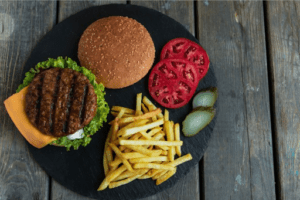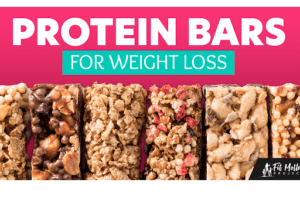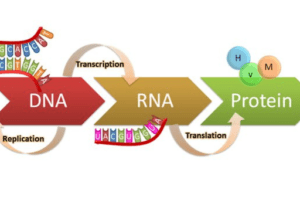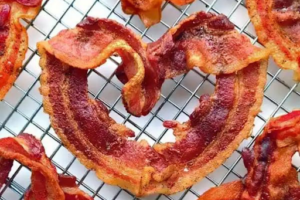There’s a good amount of protein in a regular burger, but the exact amount can vary depending on a few things:

The patty itself: Beef patties are generally the protein powerhouse of a burger. A typical 4-ounce patty made from ground beef (80/20 lean-to-fat ratio) can pack around 22 grams of protein. Leaner beef will have slightly more protein and less fat.
The size of the burger: This one’s pretty straightforward. Bigger burgers with more patty will naturally have more protein.
The toppings: Cheese adds a nice protein boost (around 5-6 grams depending on the type). Other toppings like vegetables and condiments usually have very little protein.
So, to give you a ballpark figure, a standard cheeseburger with a beef patty could offer around 25-30 grams of protein. That’s a good chunk of your daily protein needs, especially if you’re an average adult.
Is a burger a good source of protein?
Burgers can definitely be a good source of protein, especially for beef burgers. A typical beef patty packs a decent punch, offering around 22 grams of protein for a 4-ounce serving. That’s a good chunk of your daily needs!
High protein content: Compared to other fast food options, burgers have a clear protein advantage. They leave you feeling fuller for longer than fries or sugary drinks.
It depends on the burger: A turkey burger might have slightly more protein than beef, while a veggie burger might have less.
Cheese adds a protein boost, while lettuce and tomato add almost none. While the protein is great, burgers can also be loaded with fat and calories.
What type of burger has the most protein?
When it comes to protein powerhouses in the burger world, there’s a clear winner: beef burgers. A standard 4-ounce patty made from ground beef (80/20 lean-to-fat ratio) can bring around 22 grams of protein to the party.
Beef
The king of the protein castle! Leaner beef options like sirloin or 90/10 ground beef can bump up the protein content even further.
Turkey
A close contender! Turkey burgers can sometimes have slightly more protein than beef, making them a great alternative.
Veggie Burgers
These can vary a lot! Some veggie burgers made with soy protein isolate or lentils can offer a decent amount of protein, around 10-15 grams per patty. However, others might be lower. Be sure to check the ingredients list to see what the protein source is.
So, if you’re craving a protein-packed burger, stick with beef or turkey, or choose a veggie burger that highlights soy or lentil protein high on the ingredient list.
Can I get a high-protein burger at a fast-food restaurant?
Absolutely! You can definitely find high-protein options at most fast-food restaurants. Here’s how to navigate the menu for a protein punch:
Double Up the Patties
Many restaurants offer double cheeseburgers or options to add extra patties. This is the most straightforward way to boost your protein intake.
Choose the Right Protein Source: Look for burgers made with beef or turkey. These tend to have more protein than chicken burgers or veggie burgers.
Think “Lean and Mean”: If available, opt for burgers advertised as “lean” or made with a higher lean-to-fat ratio (like 90/10 ground beef). These pack more protein and less fat.
Skip the Cheese (Sometimes): Cheese adds some protein, but it also adds fat and calories. If you’re really focused on protein, consider skipping the cheese or opting for a low-fat cheese variety.

Veggie Burger with a Twist
Some fast food chains offer veggie burgers with impressive protein content, often made with soy or lentils. Check the ingredients list and choose one that emphasizes these protein sources.
Remember: While these tips can help you maximize protein, keep in mind that fast food burgers can still be high in calories and fat. Balance things out by skipping the fries and sugary drinks, and opting for a side salad or fruit.
How can I boost the protein content of my homemade burger?
Crafting a homemade burger is a great way to control the protein content! Here are some tricks to turn your burger into a protein powerhouse:
Pick Your Protein Powerhouse: Start with the patty itself. Opt for lean ground beef (90/10 lean-to-fat ratio) or even ground turkey, which can have slightly more protein than beef.
Protein-Packed Mix-Ins
Bulk up your patty with some protein-power players. Here are a few ideas:
- Eggs: A classic binder that adds a protein boost (around 6 grams per egg).
- Chopped cooked lentils or black beans: These add protein, fiber, and a delicious twist.
- Ground chicken or turkey: Mix some ground chicken or turkey with your ground beef for a protein blend.
- Protein powder (unflavored): This can be a sneaky way to add extra protein, but be sure to use a small amount (around 1-2 tablespoons) to avoid a weird texture.
Don’t Forget the Cheese: Cheese adds a nice protein boost (around 5-6 grams per slice), so choose your favorite! Consider low-fat options to keep the calories in check.
While these suggestions focus on protein, remember a well-rounded burger is key! Add some chopped veggies for vitamins and fiber, and consider a whole-wheat bun for some complex carbohydrates.
Does cheese on a burger add protein?
You got it! Cheese definitely adds protein to your burger. It’s a tasty way to bump up the nutritional value. Here’s a quick rundown:
Cheese packs a protein punch
A single slice of cheese typically offers around 5-6 grams of protein. That might not seem like a ton, but it adds up, especially when combined with the protein in the patty.
Variety is the spice of protein
Different cheeses can have slightly varying protein content. Cheddar, a popular burger cheese, is a good middle ground. Swiss cheese might have a touch more protein, while mozzarella might have a touch less.
So, cheese is a protein win for your burger! But remember:
Cheese also adds fat and calories: Keep an eye on portion sizes, especially if you’re watching your calorie intake.
Not all cheeses are created equal: If you’re really focused on protein, some low-fat cheese options can offer a similar protein boost with less fat.
Overall, cheese is a delicious way to add some protein to your burger. Just enjoy it in moderation and consider the type of cheese you choose!
Whats the Difference in protein content between beef, turkey, and veggie burgers?
In the battle of the burger patty protein,
Beef Burger: The reigning champ! A typical 4-ounce patty made from ground beef (80/20 lean-to-fat ratio) packs a wallop with around 22 grams of protein. Leaner beef options like sirloin or 90/10 ground beef can take the protein content even higher.
Turkey Burger: A worthy challenger! Turkey burgers can sometimes have a slight edge over beef in the protein department. A 4-ounce turkey patty might offer 23-25 grams of protein, making it a great alternative, especially if you’re watching your fat intake (turkey tends to be leaner).

Veggie Burger: The protein content of veggie burgers can be a bit of a wild card. It all depends on the main protein source used:
Soy or lentil-based veggie burgers: These can be surprisingly protein-packed, offering around 10-15 grams per patty. Look for brands that highlight these ingredients high on the list.
Veggie burgers with other bases (grains, vegetables): These might have lower protein content, sometimes as low as 5-7 grams per patty.
So, the protein winner depends on your choice:
- A good protein option with lower fat is turkey burgers.
- Highest protein: Beef (especially lean options) or turkey burgers.
- Veggie burgers – check the ingredients list for protein sources like soy or lentils.
No matter what patty you choose, you can always add protein to your burger with cheese, eggs mixed into the patty, or other protein-rich toppings.
Are there any healthy burger toppings that add protein?
Absolutely! Building a burger is all about customization, and you can add some healthy, protein-rich toppings to boost your burger’s nutritional profile. Here are some delicious options:

A classic choice for a reason! Cheese adds a nice protein punch (around 5-6 grams per slice) and creamy flavor. Consider low-fat options to keep the calories in check.
Eggs
Not just for breakfast! A fried or poached egg on your burger adds protein (around 6 grams per egg) and a delightful runny yolk.
Lean Protein Toppings: Think beyond lettuce and tomato. Here are some protein-packed options:
- Grilled chicken or turkey slices: Thinly sliced leftover chicken or turkey breast adds protein and a savory element.
- Shrimp or grilled fish: For a pescatarian twist, try topping your burger with some grilled shrimp or fish.
Plant-Based Protein Powerhouses: If you’re going meatless, these toppings can add protein and flavor:
- Sliced avocado: This creamy fruit offers healthy fats and around 2 grams of protein per half.
- Roasted chickpeas: Toss some chickpeas with spices and roast them for a crunchy, protein-rich topping (around 6 grams per ½ cup).
- Sprouts: Packed with protein, vitamins, and a slightly nutty flavor, sprouts are a surprising protein booster (around 2-3 grams per cup).
Balance is key! While these toppings add protein, some might also add fat or calories. Consider portion sizes and choose toppings that complement your overall burger goals.
Most references to protein content in burgers refer to a standard 4-ounce patty.
To compare protein content across different burger sizes, you can do a quick calculation. For example, if you have a 6-ounce patty, and a 4-ounce patty has 22 grams of protein, you can estimate the 6-ounce patty to have around (22 grams / 4 ounces) * 6 ounces = 33 grams of protein.
This trick can help you compare the protein content of different burgers, regardless of their size.






